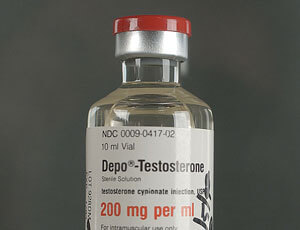What are steroids?
Anabolic-androgenic steroids are prescribed for a number of conditions such as delayed puberty, cancer and AIDS. Anabolic refers to muscle-building and androgenic refers to increased male sexual characteristics.
Common names for steroids include Arnolds, Gym Candy, Pumpers, Roids, Stackers, Weight Trainers and Juice.
What do steroids look like?
Steroids are available in tablet, injectable liquid, gel and cream forms.
How are steroids abused?
Steroids are taken orally, injected or rubbed on the skin. Illegal doses are typically ten to one hundred times higher than what is normally prescribed. To avoid unwanted side effects and give the hormonal system time to recuperate, users take steroids intermittently rather than continuously . This pattern of taking steroids over weeks or months is known as cycling. Users often take several different types of steroids and incorporate supplements in the cycle to increase the effectiveness of steroids. This is known as stacking.
How do steroids affect a person?
Anabolic steroids assist the body’s muscle cells to produce more protein, leading to increased muscle size and strength. They also help the body produce more ATP (the fuel muscles need to move). The testosterone in steroids causes growth of body/facial hair and deepening of the voice.
What are the health effects/risks of using steroids?
Long-term use of steroids can affect brain pathways, chemicals such as dopamine, and serotonin/opioid systems. This can lead to aggression, extreme mood swings and intense, violent anger. Psychiatric problems include paranoid jealousy, irritability, delusions and impaired judgment caused by feelings of invincibility.
Steroid abuse can lead to irreversible kidney damage/failure, liver damage, cardiovascular problems and high blood pressure. It can also cause an increase in cholesterol leading to an increased risk of stroke and heart attack, even in juveniles.
For men, steroid abuse can cause shrinking of the testicles, infertility, baldness, development of breasts and increased risk of prostate cancer. In women, steroid abuse can cause growth of facial hair, male-pattern baldness, changes or cessation of the menstrual cycle and deepening of the voice. In addition, adolescents can suffer from stunted growth and accelerated puberty changes.
Users who inject steroids also increase their exposure to needle-borne diseases such as HIV and hepatitis B & C.
